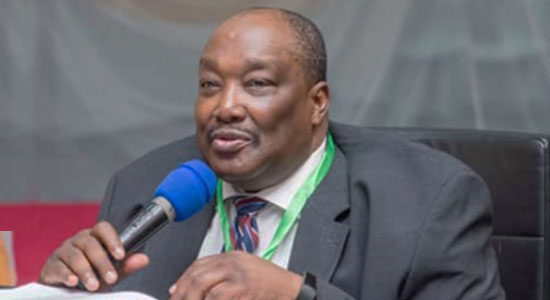A Senior Advocate of Nigeria, Joseph Daudu, SAN, has said the burden of proof in election cases must remain with the petitioner.
The SAN stated this over the weekend in Abuja at a send-forth ceremony in honour of the 42nd set of externs from the Nigerian Law School.
While dwelling on the ongoing electoral reform exercise and the quest by the National Assembly to shift the burden of proving malfeasance in election petitions from the petitioner to INEC, he noted that the proposed inversion or reversal gives cause for great concern.

This medium recalls that on the 22nd of October 2022, the Senate Chamber of the National Assembly took the second reading of the bill for an Act to repeal the Electoral Act No. 13 of 2022 and enact the Electoral Act 2025 to regulate the conduct of federal, state, and area council elections.
Justifying why the status quo of the burden of proof in election cases must not be tampered with or distorted, the SAN argued that it must remain with the petitioner, saying: “Such a measure will permanently damage the avowed neutrality of INEC.”
The learned silk submitted that the law already provides a complete and accessible record of the election process, adding: “Shifting that burden to INEC, despite these built-in mechanisms, would be contrary to both logic and law.”
The renowned legal luminary also advised legal practitioners across the nation against relying excessively on Artificial Intelligence (AI) and allowing societal stereotypes to dictate their professional judgment.
“As modern-day legal practitioners, essentially of the Gen-Z, be careful not to allow societal stereotypes to determine who you are and how you will practice this age-old profession.
“We are in an era where modern contraptions and inventions such as Artificial Intelligence, countless software in the IT world, robotics, and many others compete to offer legal solutions to lawyers,” he said.
On the recent uproar over the exercise of the prerogative of mercy by President Bola Tinubu, the SAN argued that the power of pardon has persisted from the colonial era, noting that the constitutions from 1960 to the 1999 Constitution (as amended) confer the prerogative of mercy on the president and governors.
“Nigerian leaders have exercised this power for national reconciliation, reformation of convicts, and for humanitarian reasons such as age or ill health,” Daudu said.
The Principal Partner of JB Daudu and Co., Joseph Daudu, SAN, while lauding externs from the Nigerian Law School (2025 set) on the successful completion of the law office attachment, charged them to brace up, saying they are on the right track.
He particularly cautioned them against veering off the path of professional competence so as not to be in a collision course with the Rules of Professional Conduct or risk being disciplined, even up to the extent of disbarment.
The students on law school attachment have spent six weeks in the law office, essentially to understudy the practical application of theoretical law studied and acquired in both their universities and the law school.
The programme was organised by the JB Daudu and Co. Mentorship Development Program Series and was powered by the Rule of Law Development Foundation.
At the discourse forum were other senior lawyers like Rev. John Olusola Baiyesha, SAN, representative of Aare Olumuyiwa Akinboro, SAN, Professor Akinseye-George, SAN, Mr. Anozie Obi, Special Assistant to the FCT Minister, Mr. B. B. Daudu, and Mr. Monday Ajeh, Esq., among others, who all made valuable contributions.
After the event, there were gift presentations for all the externs from both the Abuja and Kaduna chambers by the organisers.
Daudu, at the ceremony, further admonished the students on ethics and professionalism in the legal profession, adding: “It is not a tea party.
“So, as new or young legal practitioners that you will become when you are eventually called to the Nigerian Bar, you must have at the back of your minds that your work will be subjected to the strictest scrutiny both by your peers and the public at large.
“You are not a lawyer to the rich elite. You must and are expected to fight for and defend the rights of the poor, underprivileged, and the downtrodden in your society. That is why we put a substantial premium on pro bono services being rendered by lawyers to those who cannot afford to pay for such services.”
Stay ahead with the latest updates!
Join The Podium Media on WhatsApp for real-time news alerts, breaking stories, and exclusive content delivered straight to your phone. Don’t miss a headline — subscribe now!
Chat with Us on WhatsApp







